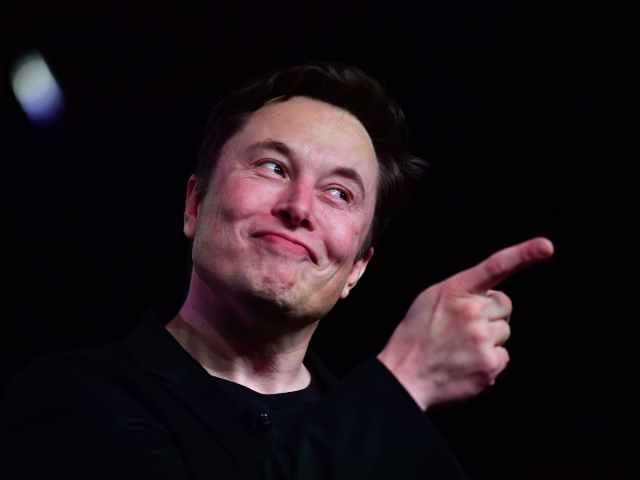A former Tesla engineer’s lawsuit has accused Elon Musk’s company of attempting to “silence” its employees.
A recent report from the Telegraph claims that Cristina Balan, a former Tesla engineer who worked at the automaker until 2014, has now claimed that the firm has accused her of misusing company money and working on her own “secret” side project. Now, Tesla is attempting to force the dispute into private arbitration arguing that documents signed by Balan when she joined Tesla removed her right to a full hearing in a court of law.
Balan argued in a court document filed in Seattle, Washington earlier this month that the dispute does not relate directly to her former employment at Tesla and as a result is not covered un the documents she signed when she joined the company. Balan stated that Tesla’s previous attempts to sue former employees shows that “this arbitration agreement is only meant to be one-sided and only with the intention to silence their employees.”
Balan claims that while she was employed at Tesla, she was prevented from participating in a series of articles to “empower young women to choose a career in automotive.” Tesla responded to Balan’s claims, stated that her legal arguments were “wholly without merit.” The firm added: “Tesla has at no point made any effort to ‘stop’ or ‘destroy’ the plaintiff in any way, including any efforts she may have made to become a public speaker.”
Tesla has previously been accused of attempting to silence whistleblowers. Bloomberg published an article in March titled “When Elon Musk Tried to Destroy a Tesla Whistleblower,” which outlines the steps that the Tesla CEO took against whistleblower Martin Tripp. Bloomberg summarized Musk’s issues with Trip, writing:
By the larger-than-life standards of Elon Musk, the story was far from a blockbuster. On June 4, 2018, Business Insiderreported that Tesla Inc. was scrapping or reworking 40 percent of the raw materials at the Gigafactory, its huge battery plant in the Nevada desert. The article cited a source who figured the inefficiency had cost Musk’s electric car company $150 million, describing giant piles of scrap materials in the factory. Tesla denied the report, and a few hours later, the world moved on.
The world, that is, except Elon Musk. Although he wasn’t asked about the Business Insider story the following day at the company’s annual meeting, he stewed for weeks, dispatching a team of investigators to try to figure out who’d shared the information with the press.
The leaker, they determined, was one Martin Tripp, a slight man of 40 who’d spent his career in a series of low-level manufacturing jobs before finding his way to the assembly line at the Gigafactory. Tripp later claimed to be an idealist trying to get Tesla to tighten its operations; Musk saw him as a dangerous foe who engaged in “extensive and damaging sabotage,” as he wrote in a staff memo. He implied that Tripp had shared the data not only with the press but also with “unknown third parties.”
Bloomberg reports that in an effort to have Tripp silenced, Tesla’s PR department spread rumors that the former employee was a danger to others:
Bloomberg reports that in an effort to have Tripp silenced, Tesla’s PR department spread rumors that the former employee was a danger to others:
On June 20, the company sued Tripp for $167 million. Later that day, Tripp heard from the sheriff’s department in Storey County, Nev. Tesla’s security department had passed a tip to police. An anonymous caller had contacted the company to say Tripp was planning a mass shooting at the Gigafactory.
When the police confronted Tripp that evening, he was unarmed and in tears. He said he was terrified of Musk and suggested the billionaire might have called in the tip himself. A sheriff’s deputy attempted to cheer up Tripp and then called Tesla to tell the company that the threat, whoever had made it, was bogus. Tripp wasn’t dangerous.
Many chief executive officers would try to ignore somebody like Tripp. Instead, as accounts from police, former employees, and documents produced by Tesla’s own internal investigation reveal, Musk set out to destroy him.
Tesla’s PR department spread rumors that Tripp was possibly homicidal and had been part of a grand conspiracy. On Twitter, Musk suggested the Business Insider reporter, Linette Lopez, was on the payroll of short sellers and claimed Tripp had admitted to taking bribes from her in exchange for “valuable Tesla IP.” Lopez denied the allegation.
Breitbart News will continue to report on this case as it develops.
Lucas Nolan is a reporter for Breitbart News covering issues of free speech and online censorship. Follow him on Twitter @LucasNolan or email him at lnolan@breitbart.com

COMMENTS
Please let us know if you're having issues with commenting.